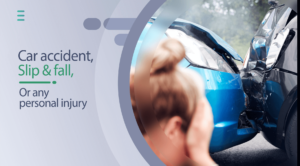Any car owner that must find some means for repairing a damaged vehicle enjoys the opportunity to select from an entire list of options.
What to consider, before selecting single option?
Who was at-fault? Was it the other driver? Was the driver following an employer’s directions?
Where might you find funds to use for covering the repairs?
—Did the other driver have liability coverage?
—Does your own policy include a collision option? Are you willing to pay the deductible, if you were to use that option?
—Do you want to pay out-of-pocket and seek reimbursement? Are you sure that you can locate a repair shop that will price its services reasonably?
Processes included in all of the available options
Personal injury lawyer in Woodbridge knows that the insurance company arranges for inspection of damaged vehicle. Vehicle’s owner must obtain assessments for repair costs by visiting 2 or more repair shops. Same shop should describe nature and extent of damage and arrange for completion of repairs
The insurance company reimburses vehicle’s owner
Possible outcomes for each of the listed processes
2 potential outcomes, following inspection of damaged vehicle
—Insurance company accepts claim that the policyholder caused the damage; that owner proceeds to carry out tasks associated with remaining processes
—Insurance company alleges that another driver caused the damage. The vehicle’s owner must seek funds from a different insurance company, or use collision coverage.
Insurer’s view of assessment for repair costs would determine outcome for that process.
—Insurer might claim that cost exceeds the anticipated expense for simple repairs.
—Insurer could approve of assessment. Vehicle’s owner could then arrange for completion of the remaining 2 processes.
Options for completion of repairs would include all shops that might agree to charge no more than the amount presented in assessment. The vehicle owner could look for a cheaper shop, and charge the amount stated in assessment. Yet that would not guarantee completion of a satisfactory job.
Before receiving any reimbursement, a vehicle owner would need to offer proof of the fact that the repairs had been completed, and the repair operation had cost the amount mentioned in the assessment. An owner’s failure to meet either of those obligations could lead to a denial of reimbursement, or a reduction in the size of the reimbursed funds.
There is another scenario that could end with the owner receiving less money than he/she had expected. That would be the case if the insurer had uncovered evidence of shared blame. In that case, the insurer would deduct some money from the funds that had been set aside for paying the owner of the damaged set-of-wheels. An owner that wanted to fight that particular outcome would need to hire a personal injury lawyer.




